
Dilmun controlled the Persian Gulf trading routes.
Dilmun was very prosperous during first 300 years of second millennium.
Dilmun was conquered by Middle Assyrian Empire (1365-1050 BC)
It's commercial power declined between 1000 BC and 800 BC as piracy flourished .
Neo-Assyrian Empire (911-605 BC) conquered Dilmun,
then 6th century BC Neo-Babylonian Empire ruled Dilmun.
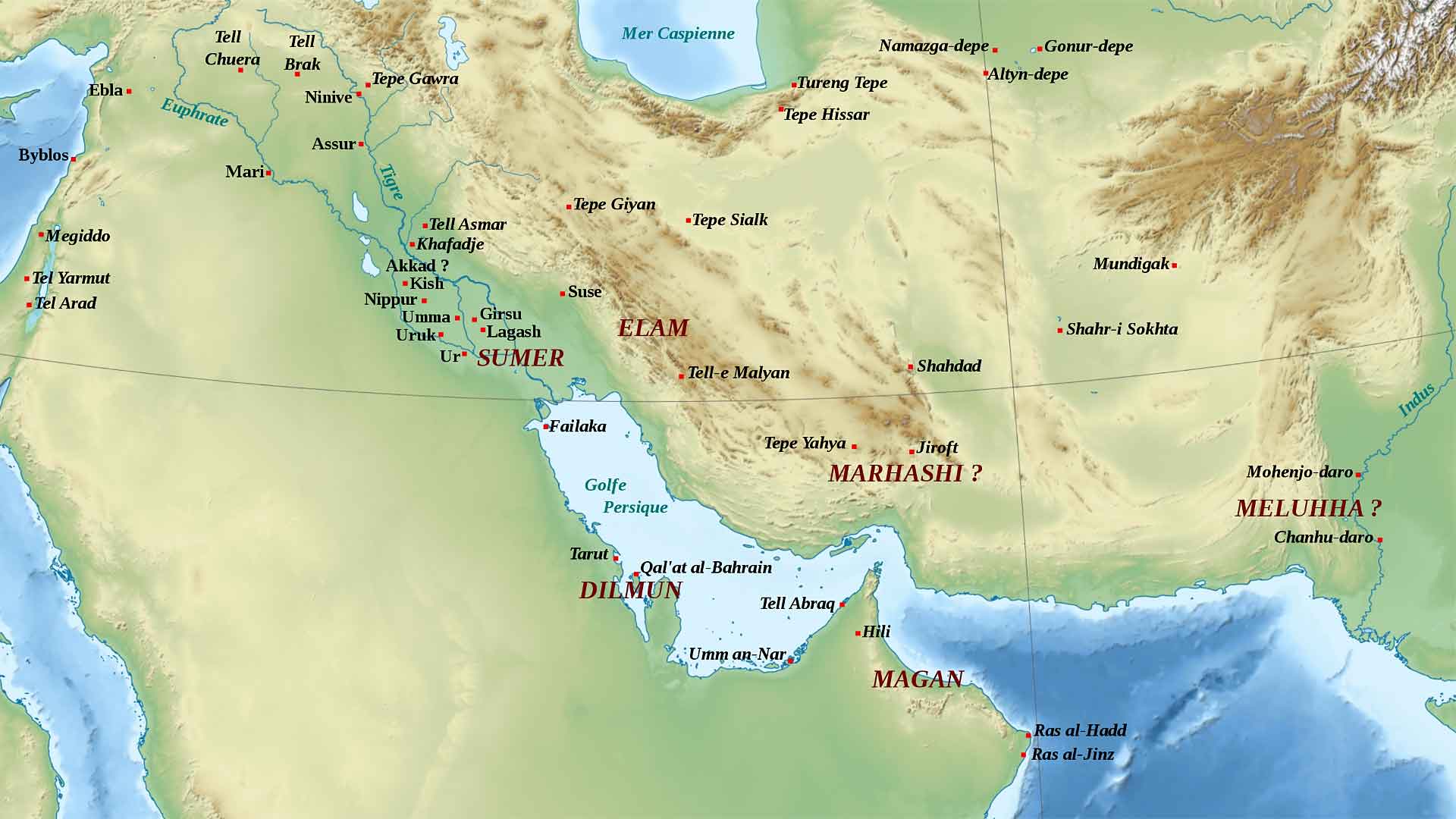
Wikipedia
Dubai has never had its own Oil Refinery despite becoming an oil producer.
Dubai has always relied on external sources for its refined oil products.
- Avgas for its airport - petroleum for its cars - diesel for its trucks, machinery and ships - lubricants of all kinds - bitumen for its roads.
With the lack of regional roads and railways, there was only one way to transport these products to Dubai - by sea.
A fleet of "Little Ships" operated for over 30 years bringing these much needed petroleum products to Dubai.
Gray Mackenzie and Company (Bahrain) bought several small ships from P & O Shipping Company in 1958 to start a cargo shipping service in the Gulf region. These sturdy little ships had been built in Holland, designed for European conditions. Dilmun Navigation Company was established to manage and operate these ships. Later the Company became part of the international conglomerate Inchcape Group. This fleet of "Little Ships" comprised general cargo ships, oil tankers and bitumen carriers. They plied regularly between the Gulf Ports carrying oil products from Bahrain and Damman around the Gulf. They became a familiar part of both Dubai Creek and Port Rashid.
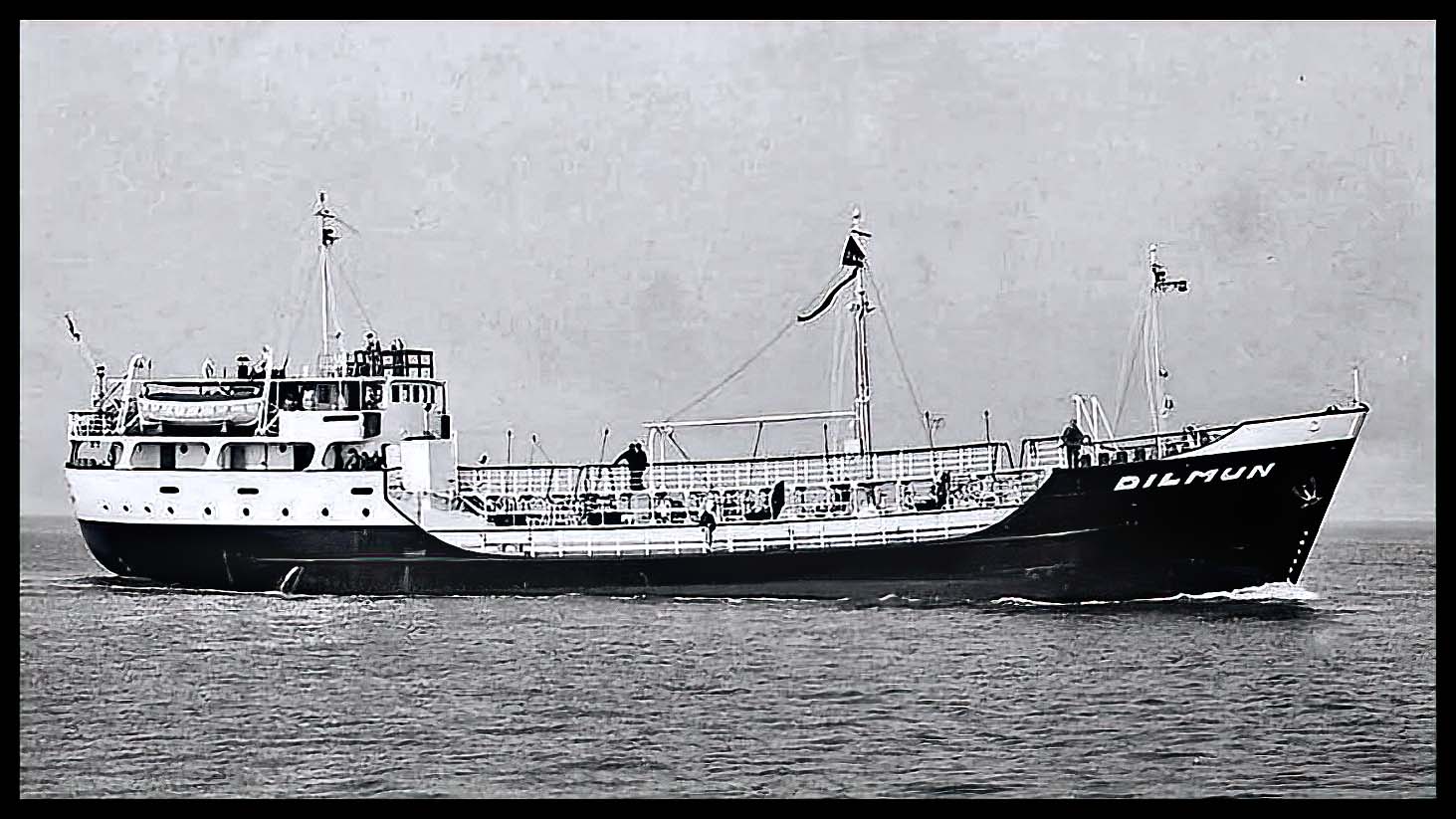
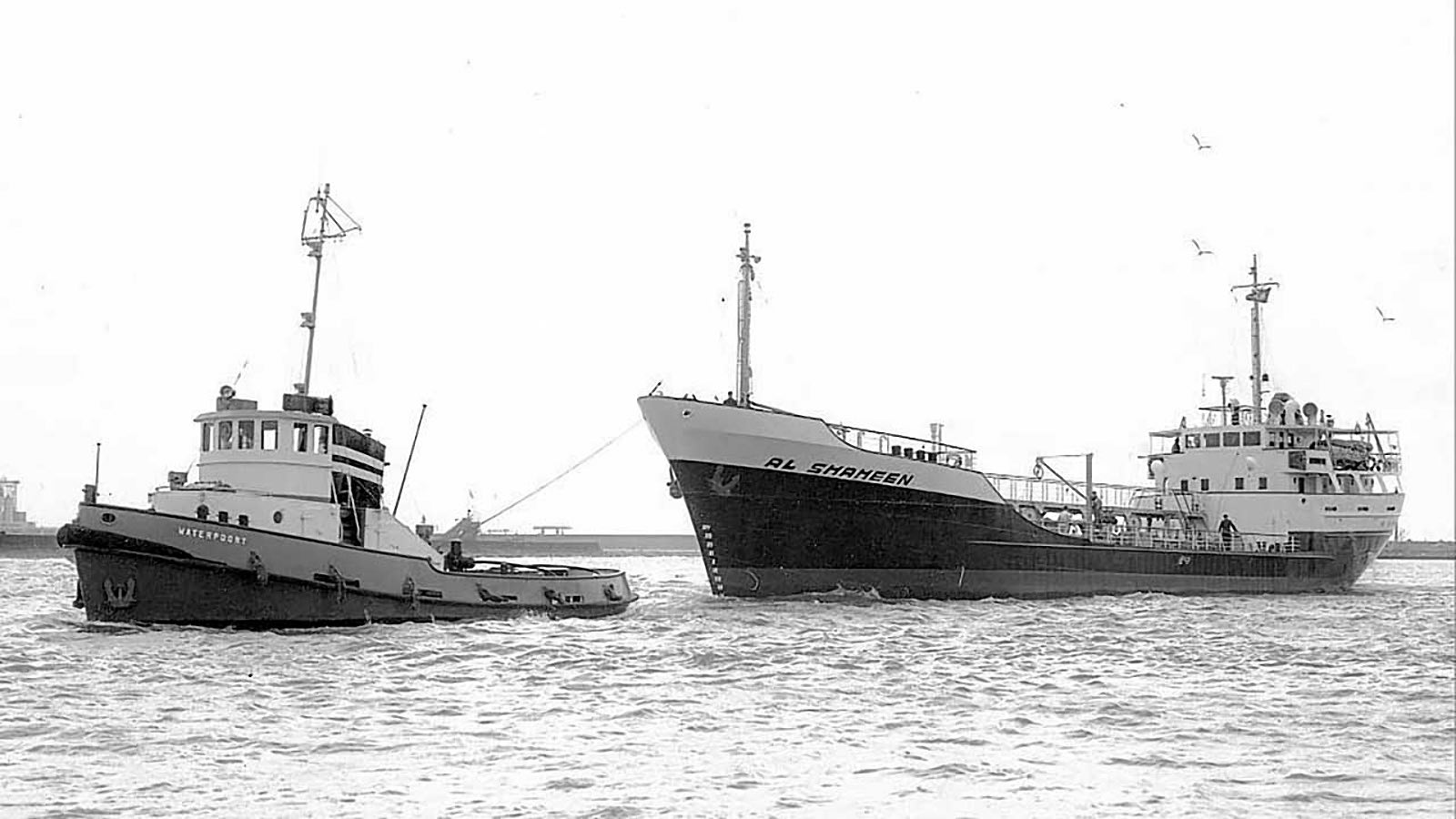
It is strange to think now that, in the past, Dubai Airport depended on the sea for its existence. But that is a fact!
Fuel used to refuel aircraft at Dubai Airport was brought to Dubai by sea in Dilmun Navigation Tankers and discharged at a Jetty in Port Rashid.
This fuel was pumped ashore through a pipeline into storage tanks located just outside Port Rashid. From there the fuel flowed to Dubai Airport via an underground pipeline where it was stored and sold to any aircraft needing refuelling.
This arrangement was still operating in the early 1990s.
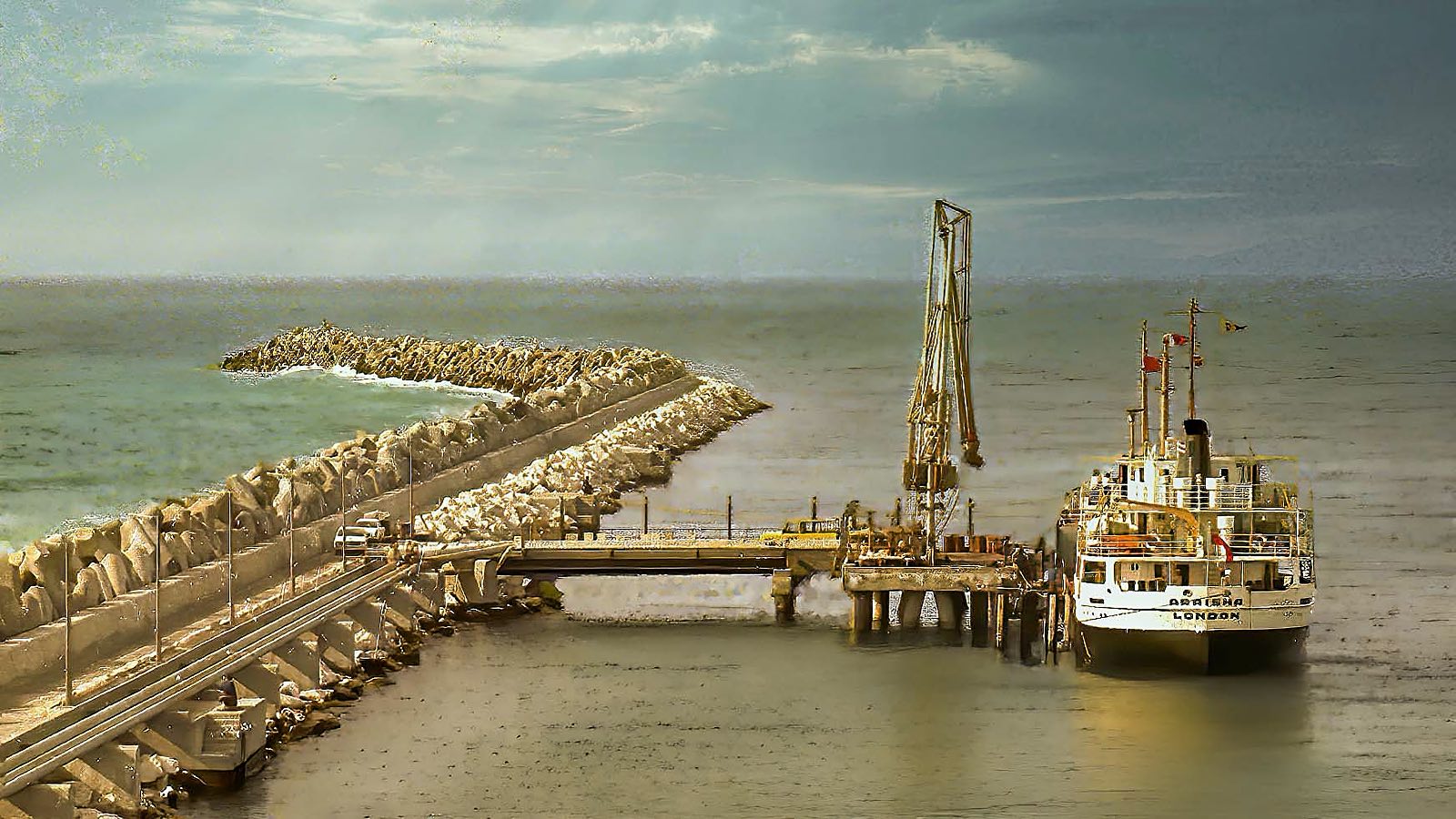
By late 1960s Dubai was starting to invest in its offshore oil industry.
McDermotts had set up a Fabrication Yard on the Creekside by Al Maktoum Bridge. Workboats supporting the burgeoning offshore industry needed fuel so BP Oil built an Oil Storage Facility next to McDermotts Yard and the old BOAC Jetty.
Dilmun Navigation Tanker Ships brought fuel oil from refineries in Damman and Bahrain.
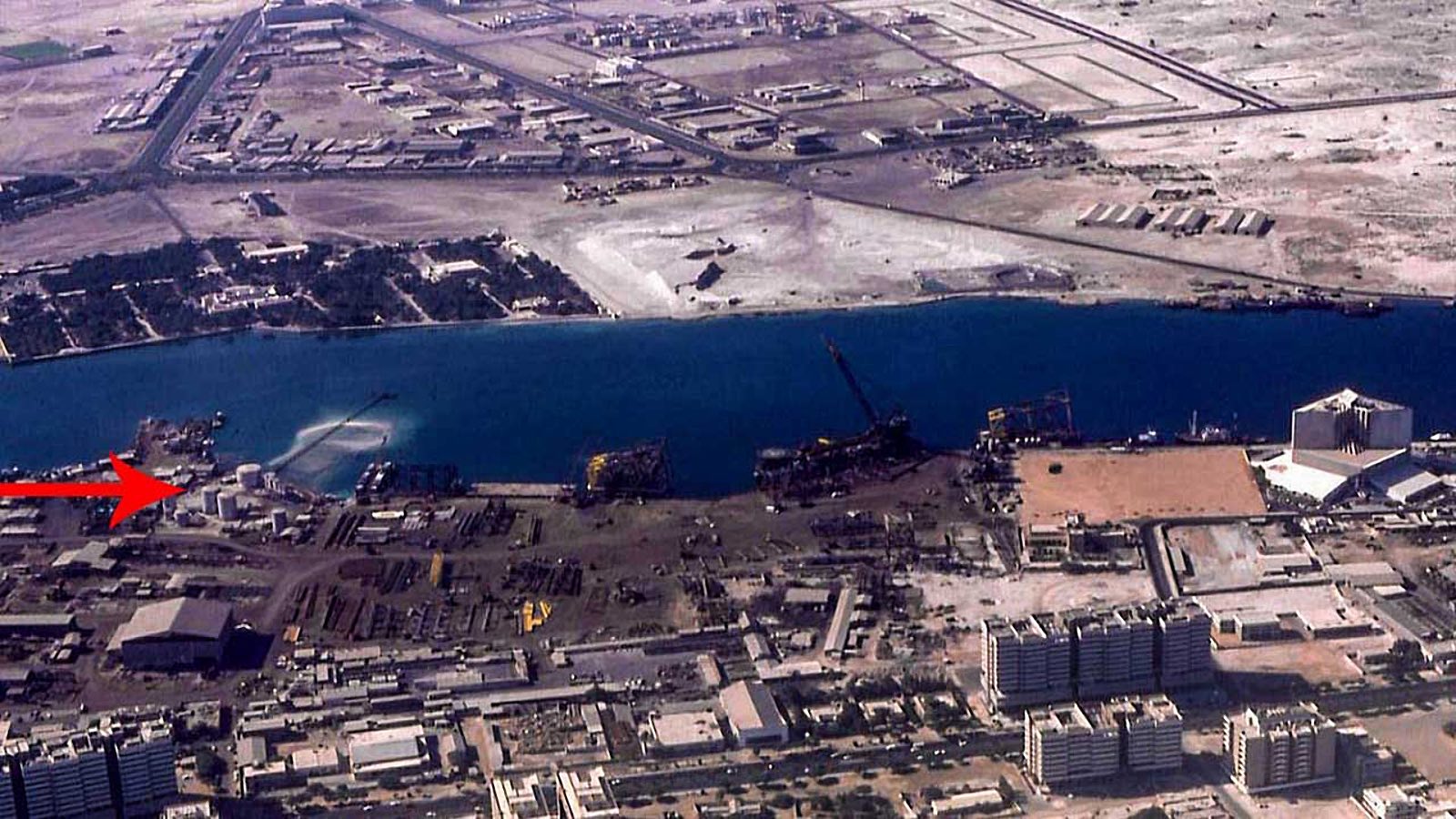
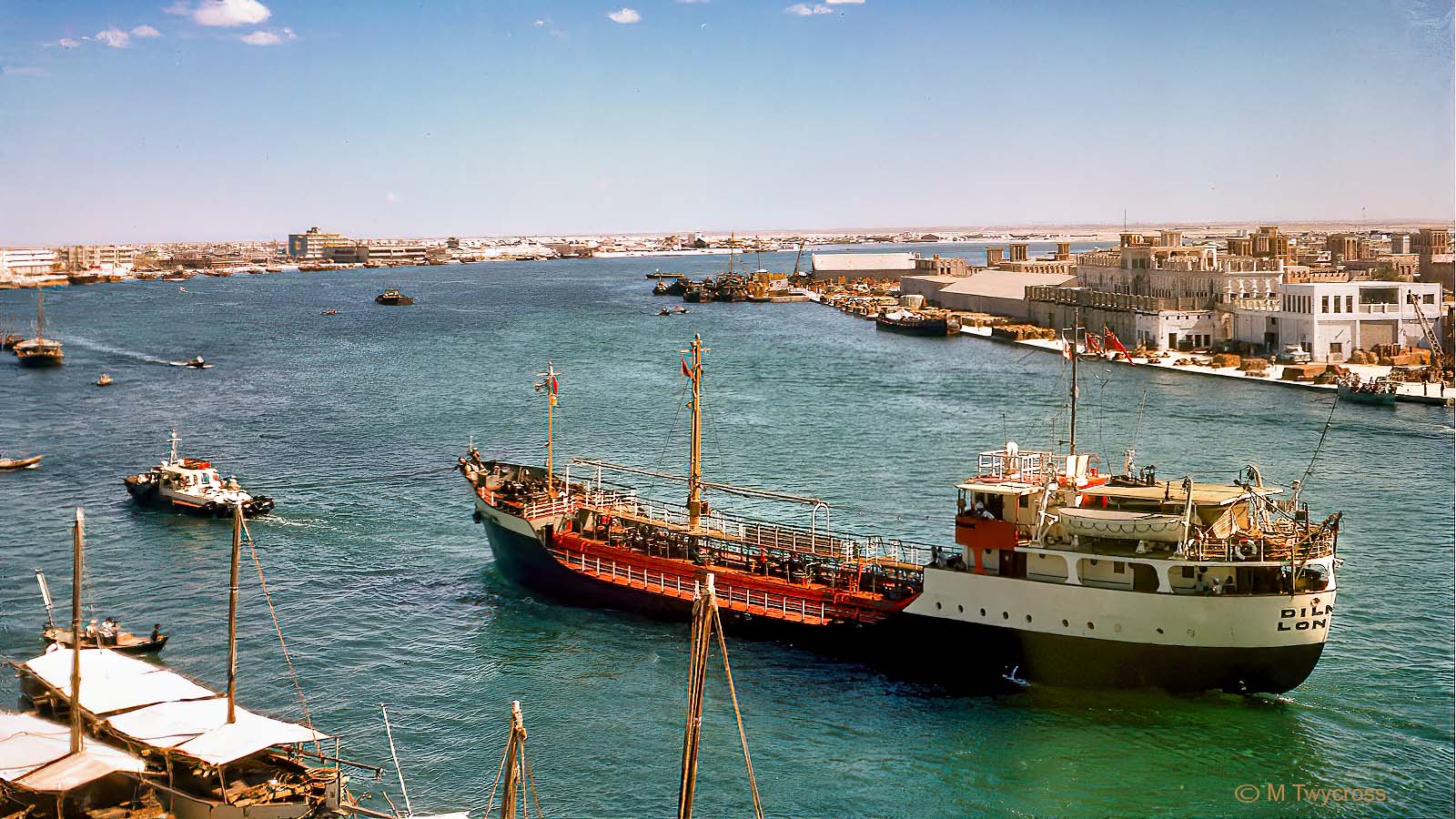
Dilmun Tanker being guided by a Tug towards McDermotts Oil Storage on Deiraside of Dubai Creek.
In 1989, Gray Mackenzie sold Dilmun Navigation to Australian Company Howard Smith.
By 1996, Howard Smith had become part of Wesfarmers.
By then Dilmun Navigation were no longer in business.
Wesfarmers Limited is an Australian conglomerate, head quartered in Perth, Western Australia.
It has interests predominantly in Australian and New Zealand, operating in retail, chemical, fertiliser, industrial and safety products.
With revenue of A$30.8 billion in the 2020 financial year, it is one of Australia's largest companies by revenue.
Wesfarmers is also one of the largest private employers in Australia, with approximately 107,000 employees.
Howard Smith Limited was an Australian industrial company.
Founded in 1854 as a shipping company, it later diversified into coal mining, steel production, stevedoring, travel, railway rolling stock building, sugar production and retail.
Its divisions began to be sold off in the 1990s with the remainder taken over by Wesfarmers in August 2001.